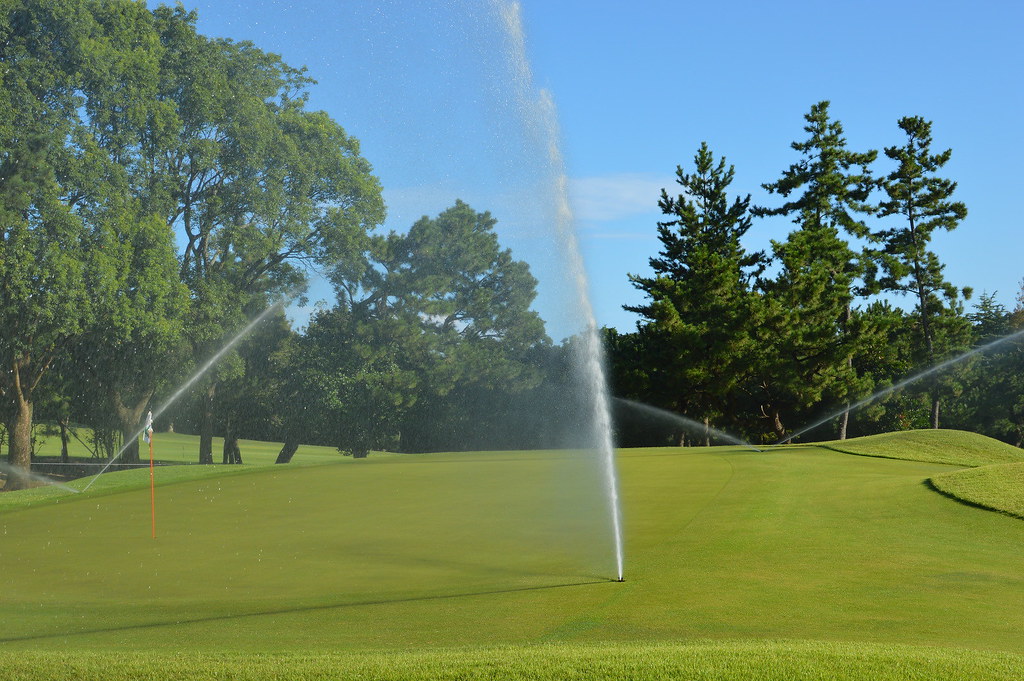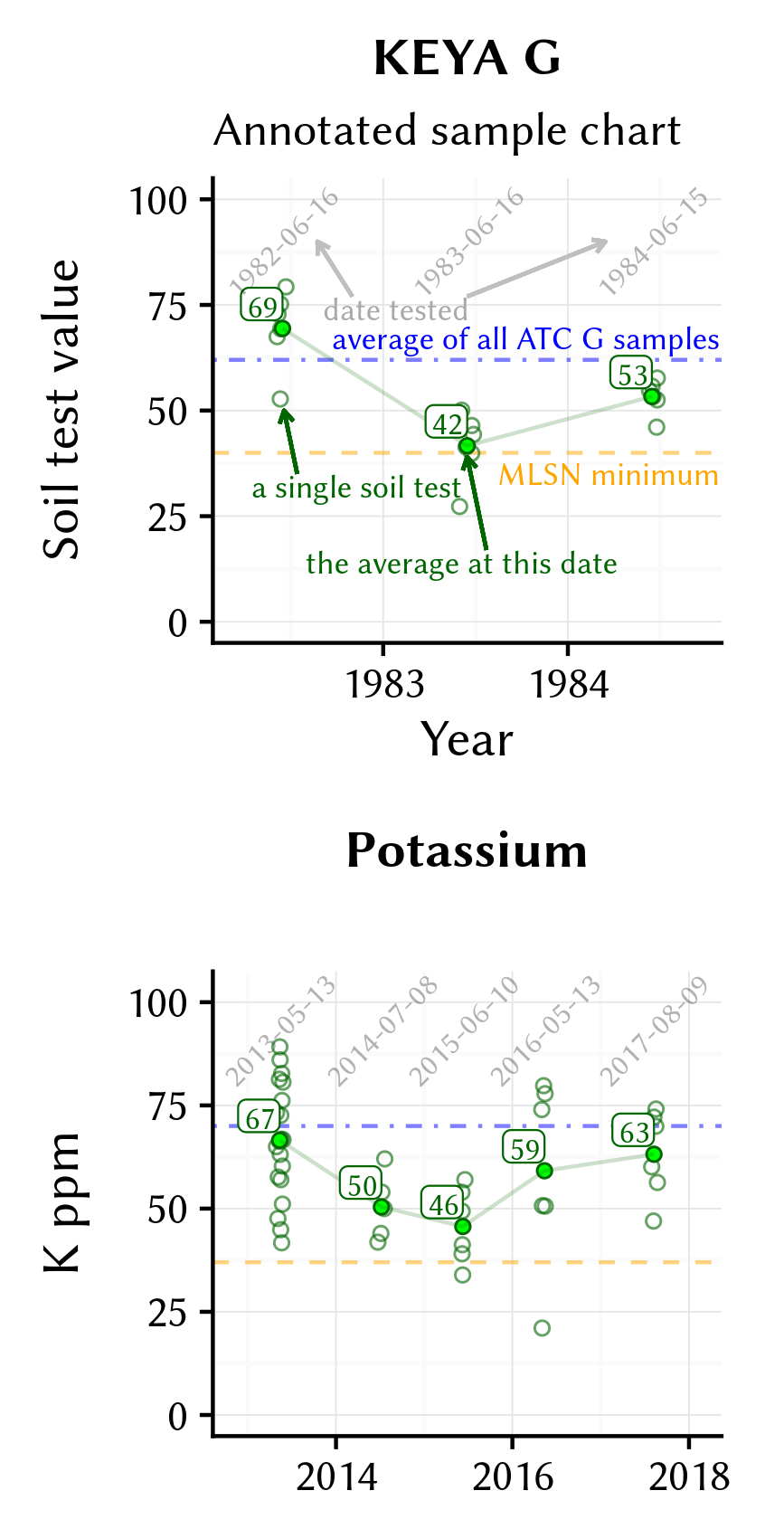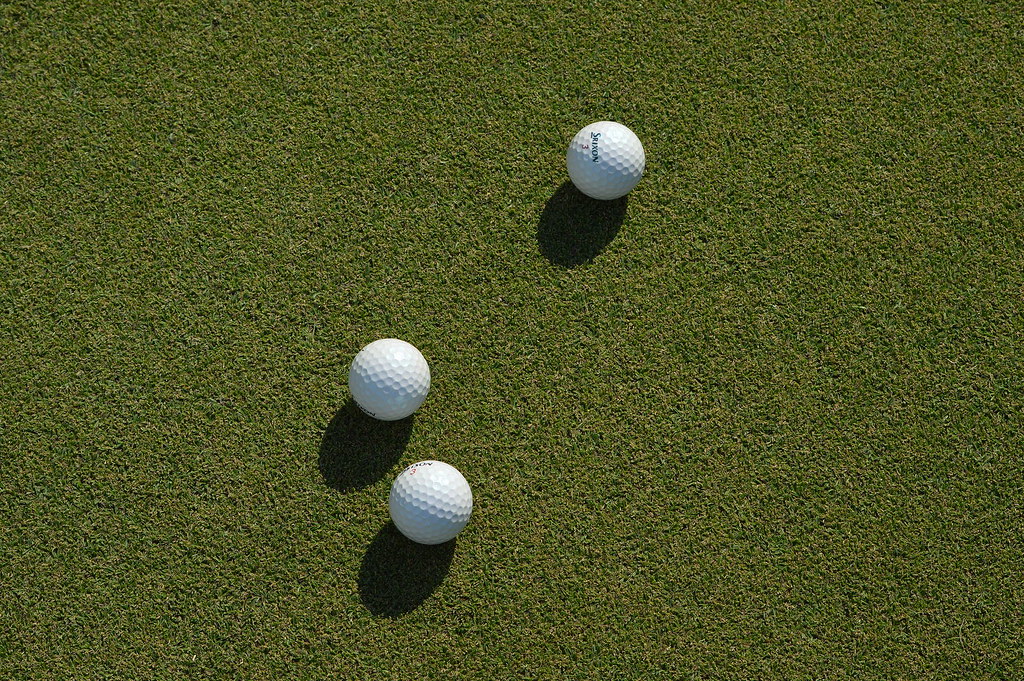When Andrew McDaniel wrote about #MLSN greens, I thought it may be interesting to show a few details of what this is about:
These #MLSN greens are about to take 34 mows/21 rolls in 2 weeks. With 20,000 rounds remaining of our annual 45,000. #zoysia #KBCオーガスタ pic.twitter.com/dhES6xd4nB
— Andrew McDaniel (@drumcturf) August 15, 2017
Keya GC hosts a golf tournament each year at the end of August. Andrew wants to make sure the turf is supplied with enough nutrients throughout the year, and he uses the MLSN nutrient guidelines to accomplish this.

Soil samples from Keya GC have been sent to Brookside Laboratories for the past five years. The soils are tested for nutrients, and ATC then prepares a report and recommendations. This chart extracted from ATC’s most recent soil test report for Keya GC, showing potassium (K) from putting green (G) samples, illustrates how the MLSN guidelines work.

In 2013, the soil K was 67 ppm, and I recommended applying an N:K ratio of 2:1 for the next year. That’s a little bit less K than the korai will use. As expected, the soil K dropped, but was still at 50 ppm in 2014, well above the MLSN minimum of 37. I again recommended a 2:1 ratio for the next year.
By June of 2015, the average K was 46 ppm, and one of the greens was below the MLSN minimum for K. At that time, I made a new recommendation, to apply N and K in a 3:2 ratio. This is a little more K than the grass can use, and with that amount of K supplied, the soil K has increased.
It isn’t much K; only 7.2 g K m-2 were supplied in 2016, but that was enough to cause an increase in the soil K. When one supplies more of an element than the grass can use, that element will either be lost from the soil (usually by leaching, in the case of potassium), or it will increase in concentration in the soil. There have been 6.1 g K m-2 applied so far in 2017.
That’s a site specific amount that is enough to keep the soil above the MLSN guideline and produce high quality turf.
